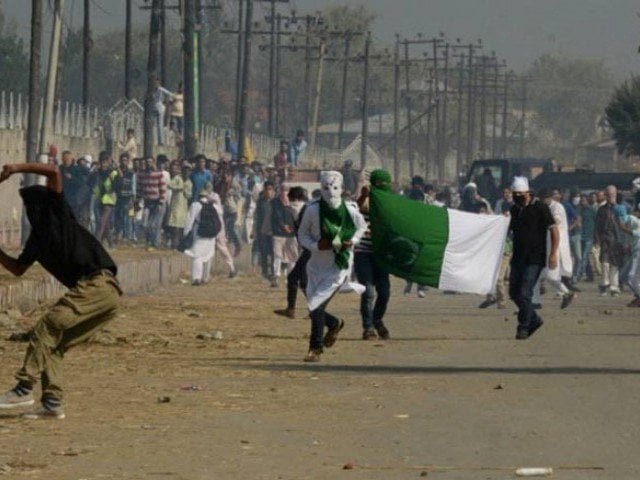The people of Pakistan and Azad Kashmir in the country and abroad observe Kashmir Solidarity Day on the fifth of February each year, to mark their unwavering support and unity with the people of Indian Illegally Occupied Jammu and Kashmir (IIOJK). This day begins with special prayers in mosques for the liberation of Kashmir, protests and public processions carried out throughout Pakistan, Azad Kashmir and important cities across the globe against decades-long oppression of the Indian occupier regime. The government of Pakistan, media, civil society, and human rights organizations call on the Indian government to fulfil its legal obligations by honouring UN Secuirty Council (UNSC) Resolutions on the Kashmir dispute by enabling Kashmiris to exercise their globally recognized right to self-determination. At the same time, the UN and the global community are sensitized about their moral responsibility in implementing long-held UNSC resolutions on the Jammu and Kashmir issue.
Historically, New Delhi’s complicity with Kashmiri Hindu Maharaja and forceful occupation of Jammu and Kashmir caused a lifelong problem for millions of Kashmiri Muslims, splitting the territory into two, prompting displacement and migration along with instigating rivalry between the newly liberated neighbouring states, India and Pakistan. Kashmir is one of the longstanding unresolved disputes on the agenda of the UN Security Council (UNSC) and is like a stigma on the prestige and reputation of the global forum. The Indian rulers themselves took the Kashmir issue to the UN and acknowledged the need for a peaceful settlement of the issue by holding a plebiscite in the Jammu and Kashmir region. Later, India treacherously violated the UN resolutions and did not hold a plebiscite in disputed territory until now. Over the past decades, Indian-occupied territory remained one of the world’s most militarized zones as New Delhi deployed over nine hundred thousand troops to suppress Kashmiris’ rightful struggle to grasp their right to self-determination conferred by the UNSC decades ago. The human rights situation in Kashmir remains dire, while the Indian security forces weighed an undeclared war against innocent Kashmiris through raid and search operations, arbitrary arrests, extra-judicial killings, use of pellet guns, unlawful coercion and torture, blockage of the internet and restrictions on the press, movement of the public, peaceful assembly and political activities. Thus, Kashmir has been presenting the scenes of a highly guarded open prison where inmates do not have even the basic rights and access to information, religious freedom, political rituals etc.
Over the decades, Indian rulers not only betrayed the UNSC’s resolutions regarding the Kashmir dispute but intentionally introduced policies and implemented measures aimed at consolidating India’s unlawful control of the valley along with adding further complications to the issue making UNSC’s resolutions null and void. The major step in this regard was the Modi- regime’s unlawful actions taken on August 5, 2019, and thereafter, which was a failed attempt to sabotage the Kashmir issue by taking unilateral domestic constitutional and administrative measures. The Modi government allowed non-Kashmiris to get Kashmiri citizenry and property rights, and altered electoral constituencies and voter lists to ultimately change the demography of the disputed territory through biased and pre-planned illegal actions.
Unfortunately, 78 long and tragic years have passed after Indian troops illegally occupied the Muslim-majority Jammu and Kashmir valley and an equal amount of time has elapsed that the Kashmiris are waiting for the implementation of the UNSC resolutions to amicably settle this dispute that has shaped into a grave humanitarian crisis over the past decades. In fact, a single-day expression of solidarity with Kashmiris and event-driven sensation of the Kashmir issue failed to produce the required result in the past decades. Today, on February 5th 2024, the Pakistani Nation and the government must swear and take an oath that a fresh and wholehearted effort will be launched at the global level through all available means including media, human rights advocacy, political and legal campaigns to consistently raise the Kashmir dispute and highlight the urgency for immediate implementation of the UNSC resolutions and the serious risk of a nuclear clash involving the two nuclear-armed states in South Asia. So, things move in a positive direction, the decades-old Kashmir issue gets the attention of the global community and the dream of a free and prosperous Kashmir could be realized as early as possible.







